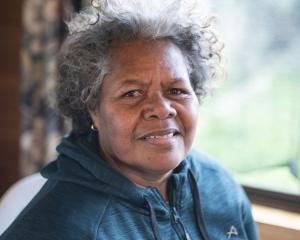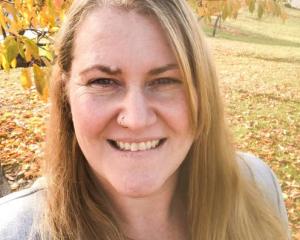A Central Otago midwife faces a charge of professional misconduct after allegedly trying to "broker" a deal which involved members of her family adopting her teenage client's baby.
The three-day hearing began yesterday in Alexandra before the Health Practitioners Disciplinary Tribunal. The name of the midwife is suppressed in the interim and the names of her 17-year-old client, the baby, baby's father, baby's grandparents and prospective adoptive parents are permanently suppressed.
The tribunal comprises Bruce Corkill (chairman), Jane Huria, Anna van Uden, Jenny Woodley and Anne Yates. The Midwifery Council of New Zealand's Professional Conduct Committee (PCC) determined the complaint should be considered by the tribunal.
The charge is that while continuing to act as the teenager's midwife between November 2006 and January 2007, the woman failed to act in the best interests of her client, that she initiated, promoted, progressed and managed a private adoption with family members as the prospective parents.
In doing so, she was alleged to have promoted her own personal interests, failed to respond to her client's social, psychological and emotional needs and so caused harm to the mother-to-be.
After giving birth, the teenager changed her mind about adopting out the baby.
Counsel for the PCC, Matthew McClelland, said in his opening statement that by the time the teenager discovered she was pregnant at about 30 weeks, termination was not an option but adoption was.
A medical social worker had met the girl and her mother and given them information about adoption and the counselling services available. Another social worker, employed by the Department of Child, Youth and Family (CYF) adoption services, told the midwife the girl could contact her about the adoption process.
The midwife confirmed her client was looking at a portfolio of potential adoptive parents for her baby and she might want to look at CYF portfolios as well, Mr McClelland said.
Later, she said her client was looking at a "private arrangement" but she knew she could make contact with CYF if she needed to.
The midwife asked what was involved in a private adoption and would have been advised that it was important the birth mother be aware of all her options and that all adoptive parents needed to be approved by CYF regardless of whether it was a private arrangement, he said.
The expectant mother had consulted a lawyer, Nicole Murphy, with her mother, and said she wanted the midwife's family members to adopt her baby.
Mrs Murphy gave evidence that she was uneasy about the arrangement. The teenage mother was vulnerable and had been told she would not be "welcome" at home if she kept the baby.
"During the whole process I was concerned anyway about her lack of support; she was the child in this, and I thought she deserved more than she was getting," Mrs Murphy said.
She wanted the girl to make a fully informed decision about the adoption without any potential influence by the midwife.
Mrs Murphy believed the midwife had a conflict of interest and should have stepped aside.
During cross-examination by the midwife's counsel, David More, Mrs Murphy agreed it was difficult, in small towns, for professional people like lawyers to avoid conflict of interest.
"But sometimes you have to refuse to act [because of conflict of interest]," she said.
CYF adoption services South Island team leader Peter McGurk said there was no such thing as a "private adoption".
The department had to approve any potential adoption of a child and also had to determine whether prospective parents were "fit and proper" people to care for a child.
He described the procedure for assessing potential parents and said it could take between two to three months to complete. Consent for adoption had to be given freely and without duress, Mr McGurk said.
Consent given before the birth was provisional only and it was not unusual for parents to reconsider after the birth and change their mind about adoption.
He believed there was a conflict of interest in the midwife remaining caring for the teenage mother-to-be when she had suggested family members as prospective parents of the girl's baby.
"[The midwife's] actions therefore placed all parties in a vulnerable, if not untenable position - both emotionally as well as legally," Mr McGurk said.
Under cross-examination, he said there was a "significant risk in brokering an adoption proposal" involving the midwife's family members.
Mr More suggested it was the social workers' responsibility to offer counselling for an informed decision, not the midwife's responsibility.
Mr McGurk said he would expect midwives to ensure a mother had access to counselling services to make an informed decision about adoption.
Mr More said the girl had decided to keep her baby, so the department was "making a large mountain out of a very small molehill about what deficiencies the midwife may have had".
"If there was a real concern, why did the social workers not become proactive?"
The hearing will continue today.











